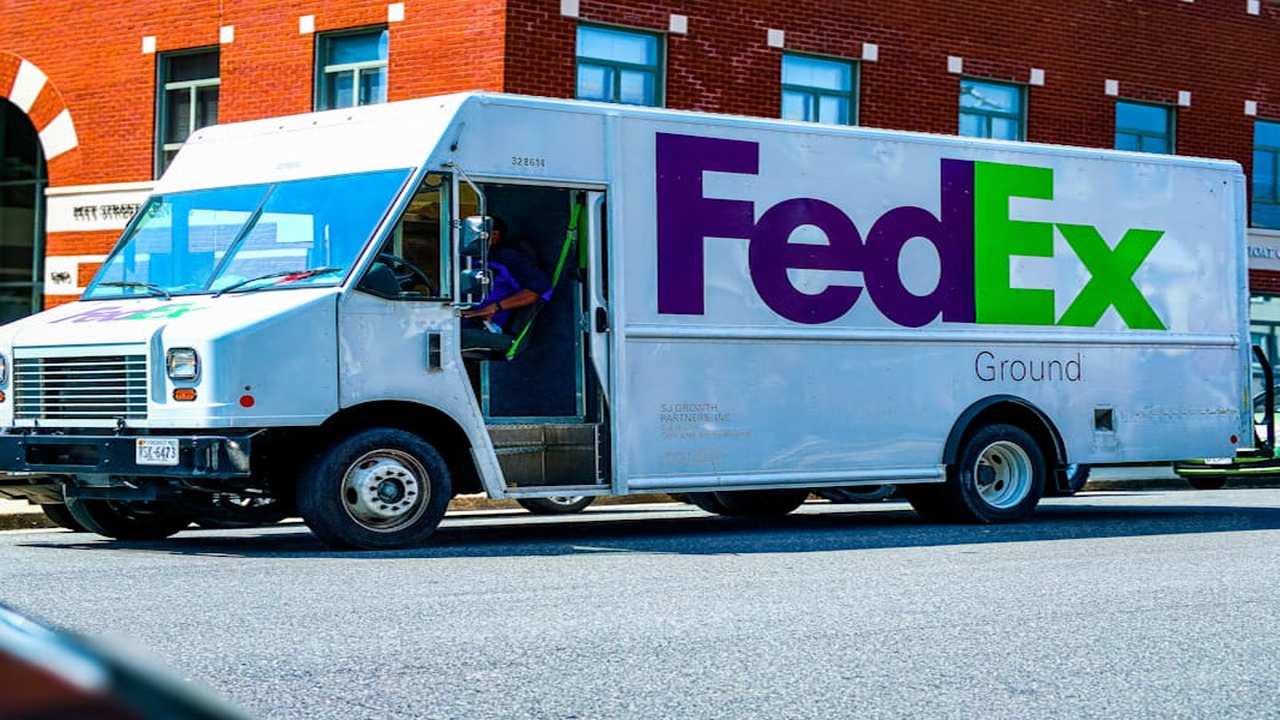 Amidst the urgency of Climate Week NYC 2025, Forbes has unveiled its prestigious Sustainability Leaders list, honoring FedEx CSO Karen Blanks Ellis for spearheading the sustainability strategy of the world's largest express transportation company. Recognized for driving substantial reductions in direct emissions and cost savings through innovative initiatives, Blanks Ellis stands among a select group of global leaders shaping climate action. Delve into her insights on advancing aviation sustainability, leveraging nature-based carbon capture solutions, and aligning sustainability with FedEx's transformative business strategy in this exclusive article.
Amidst the urgency of Climate Week NYC 2025, Forbes has unveiled its prestigious Sustainability Leaders list, honoring FedEx CSO Karen Blanks Ellis for spearheading the sustainability strategy of the world's largest express transportation company. Recognized for driving substantial reductions in direct emissions and cost savings through innovative initiatives, Blanks Ellis stands among a select group of global leaders shaping climate action. Delve into her insights on advancing aviation sustainability, leveraging nature-based carbon capture solutions, and aligning sustainability with FedEx's transformative business strategy in this exclusive article.
Advancing Aviation Sustainability
FedEx's commitment to sustainability goes beyond mere rhetoric, as evidenced by their goal of achieving carbon-neutral operations by 2040. Karen Blanks Ellis, the company's Chief Sustainability Officer, has been instrumental in driving this agenda forward. Through initiatives like aircraft modernization and fuel conservation efforts, FedEx has managed to reduce its direct emissions by 6.1% year-over-year. This not only aligns with their sustainability goals but also translates into tangible cost savings, with the company saving a significant $400 million in jet fuel costs in FY 2024. Blanks Ellis's strategic leadership in advancing an "all of the above" approach to aviation sustainability underscores FedEx's proactive stance in addressing environmental challenges within the transportation industry.
In parallel with their emission reduction efforts, FedEx has actively engaged in collaborative discussions during Climate Week NYC to scale sustainable solutions and overcome shared barriers. By convening a roundtable with Foreign Policy, the company brought together a diverse group of experts to explore innovative approaches to natural carbon removal techniques. This multi-stakeholder dialogue emphasized the importance of increased production of sustainable aviation fuels, air traffic control enhancements, and the adoption of a global framework for aviation emissions management. Blanks Ellis's advocacy for a comprehensive suite of solutions reflects FedEx's holistic approach to sustainability, emphasizing the need for industry-wide collaboration to achieve meaningful progress in aviation sustainability. FedEx's strategic participation in such forums not only showcases their commitment to environmental stewardship but also positions them as a thought leader in driving sustainable practices within the aviation sector.
Leveraging Nature-Based Carbon Capture Solutions
In line with the growing emphasis on carbon removal strategies, FedEx has recognized the pivotal role of nature-based solutions in their long-term sustainability strategy. While the company remains focused on decarbonizing its operations to achieve carbon neutrality by 2040, the residual emissions, especially in aviation, necessitate innovative approaches like carbon capture. Notably, FedEx's $100 million investment in establishing the Yale Center for Natural Carbon Capture underscores their commitment to advancing scientific research in this domain. Through initiatives like enhanced weathering, which accelerates the Earth's natural carbon cycle, FedEx aims not only to offset emissions but also to create additional benefits for farmers by improving soil health and crop yields. Blanks Ellis's emphasis on scaling up carbon removal techniques highlights FedEx's proactive stance in addressing the challenges of hard-to-abate industries, underscoring the company's dedication to driving sustainable innovation beyond operational boundaries.
Aligning Sustainability with Transformative Business Strategy
FedEx's sustainability strategy is intricately woven into its broader business transformation efforts, reflecting a strategic alignment between environmental stewardship and operational excellence. As the company undergoes significant organizational changes to enhance network efficiency and leverage data insights, sustainability emerges as a core component of their long-term vision. Given FedEx's ownership of key assets within its transportation network, the focus on reducing direct emissions not only aligns with their sustainability objectives but also resonates with their customers. Blanks Ellis's acknowledgment of the interplay between sustainability and business strategy underscores the symbiotic relationship between operational efficiency and environmental responsibility. By addressing their Scope 1 emissions, FedEx not only drives internal efficiencies but also influences their customers' carbon accounting practices, thereby reinforcing the interconnectedness of sustainability efforts across the value chain.
Conclusion
In a landscape defined by urgency and innovation, FedEx and Karen Blanks Ellis exemplify the pinnacle of sustainability leadership. Their relentless pursuit of carbon neutrality, investment in nature-based solutions, and seamless integration of sustainability into business strategy set a formidable standard for the industry. As we navigate the complexities of climate action, FedEx's proactive approach and collaborative ethos underscore the transformative power of strategic sustainability, urging us all to embrace a future where environmental stewardship and operational excellence converge for a more sustainable tomorrow.